“The Sacraments are the manifestation of the Father’s tenderness and love toward each of us.”
Pope Francis
God is always calling us to relationship. He wants to love us, heal us, and use us as instruments of His divine mercy. This is why the Lord has given us the Seven Sacraments: to pour out his redeeming grace and to grant us eternal life with Him. By participating in the Sacraments we answer His call with a resounding and joyful “yes!”
“Baptism is the best gift we have received. Through it, we belong to God and we possess the joy of salvation.“
Pope Francis
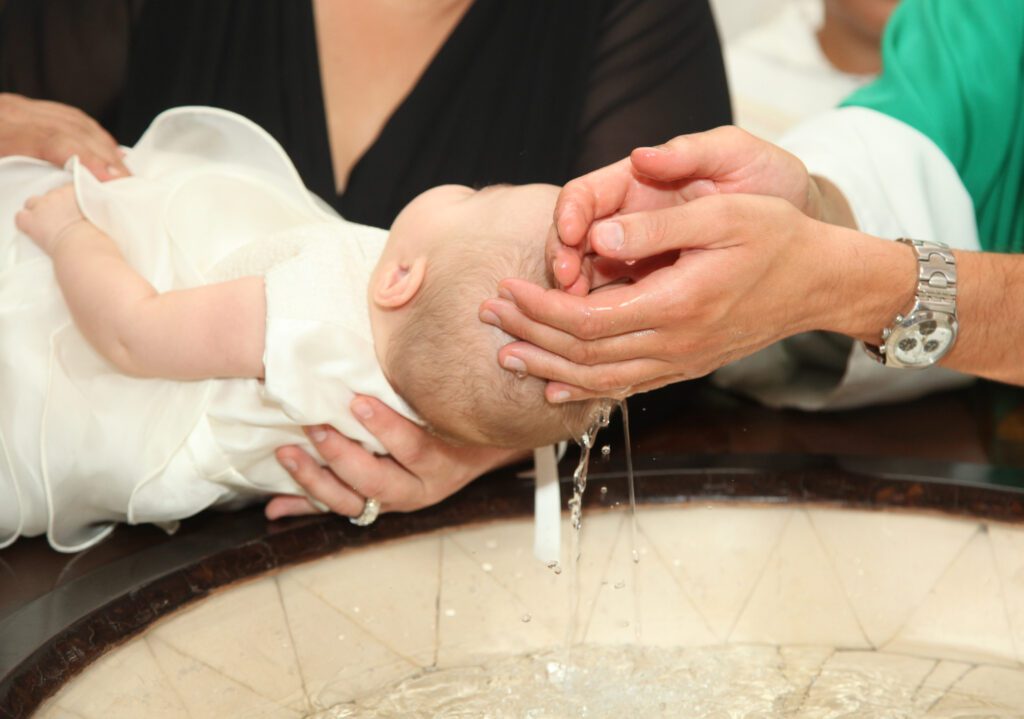
“Go, therefore, make disciples of all nations; baptizing them in the name of the Father and of the Son and of the Holy Spirit, teaching them to observe all that I have commanded you” (Matthew 28:19-20).
Through Baptism, God enables us to participate in his life in Jesus Christ and make us his children. It is through Baptism that we receive the Holy Spirit and become members of the People of God. By baptism, God purifies us from sin.
Baptism for the children of the age of reason or older is through our Rite of Christian Initiation (RCIA) program.
Arrangements for your child’s Baptism are made by contacting Deb at the Parish Office (309-367-4407). First time parents will need to meet with the Pastor for a Baptism class prior to the baptism. We suggest calling a month or so before the child is born, especially if you need to complete the Baptism class.
The Lord never tires of forgiving. It is we who tire of asking for forgiveness.
Pope Francis
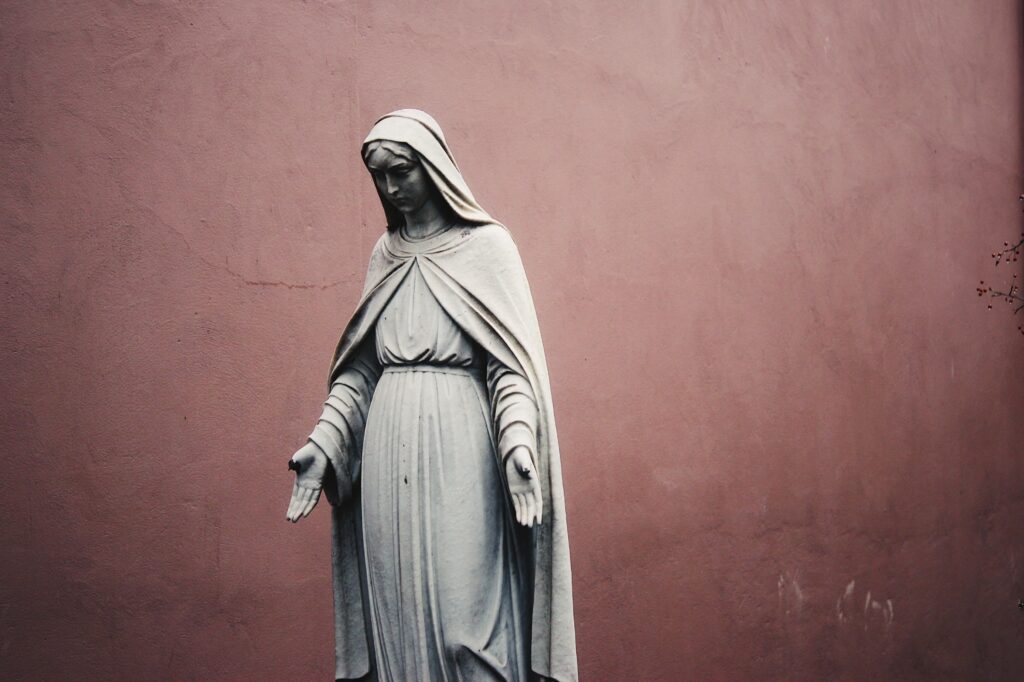
Saint Padre Pio encourages us to regular confession more than twice a year
The peace of mind and soul which this sacrament imparts to us is one for which there is no substitute. It is a peace that flows from a certainty, rather than from an unsure hope, that our sins have been forgiven and that we are right with God. A good Catholic examination of conscience can be great help in making a new start in the life of faith. Make an act of contrition daily.
First Reconciliation is part of the First Communion preparation program.
Confession times: 20 minutes before Mass on Sunday, Tuesday, Wednesday, and Friday, Saturday from 3:00 p.m. – 3:45 p.m., or by appointment
Lenten Confession times:
Fridays during Lent–4:30-4:55pm before Stations of the Cross;
April 12–2:00-3:45pm;
April 16–12noon-1:00pm;
April 16–6:30-8:00pm
“The Eucharist is the bread that gives strength… It is at once the most eloquent proof of His love and the most powerful means of fostering His love in us.”
Saint Damien of Molokai
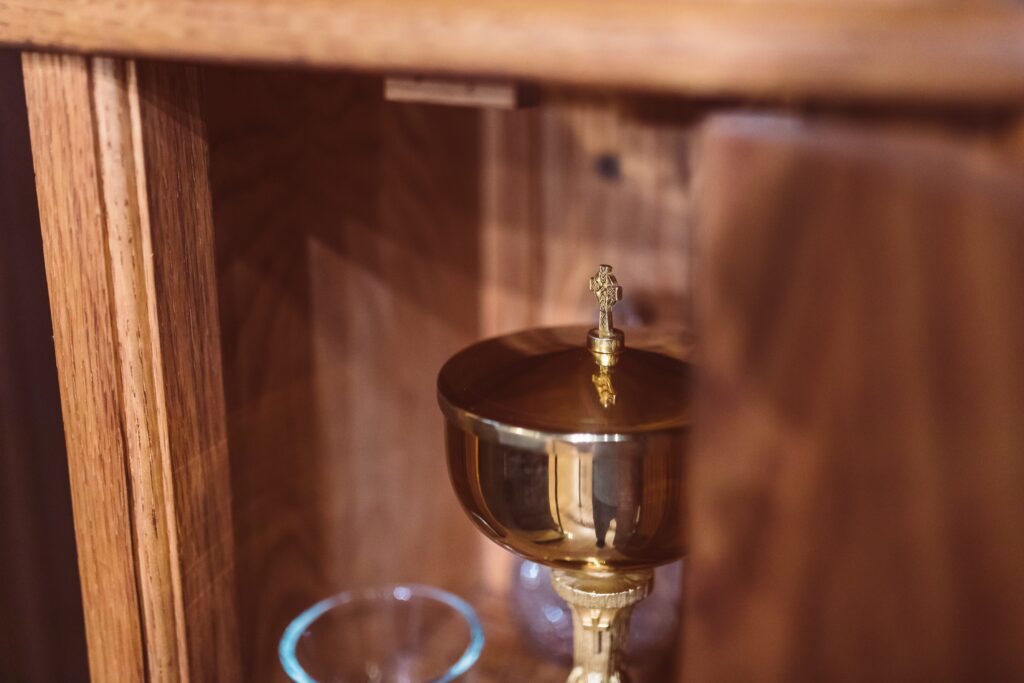
“He who eats my flesh and drinks my blood abides in me, and I in him.” (John 6:56)
“As the living Father sent me, and I live because of the Father, so he who eats me will live because of me” (Catechism of the Catholic Church #1391).
“Unless you eat the flesh of the Son of man and drink His blood, you have no life in you.” (John 6:53)
In Holy Communion, we receive Jesus Christ, who gives Himself to us in His body, blood, soul, and divinity. This intimate union with Christ both signifies and strengthens our union with Him and His Church.
“For I know well the plans I have in mind for you—oracle of the LORD—plans for your welfare and not for woe, so as to give you a future of hope.”
Jeremiah 29:11
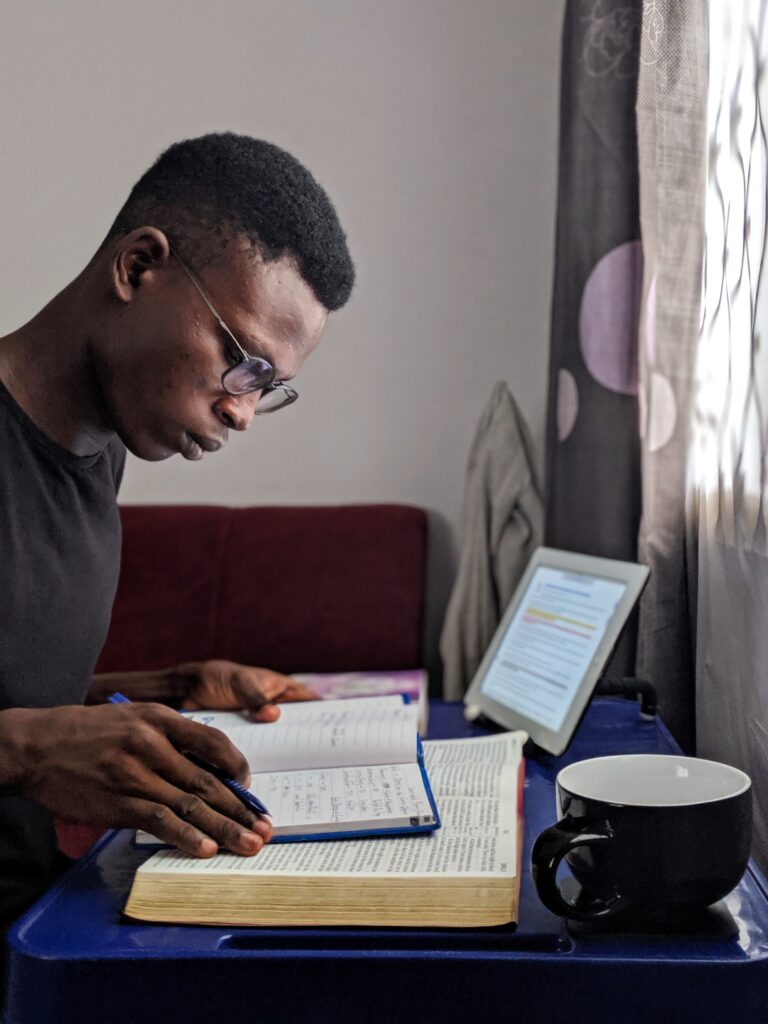
“Baptism, the Eucharist, and the sacrament of Confirmation together constitute the “sacraments of Christian initiation,” whose unity must be safeguarded. It must be explained to the faithful that the reception of the sacrament of Confirmation is necessary for the completion of baptismal grace…” (Catechism of the Catholic Church #1285)
The Sacrament of Confirmation is one of the three sacraments of initiation into the Catholic Church (together with Baptism and Holy Communion). This special anointing given by the bishop or priest has the effect of increasing, deepening, and strengthening the sanctifying grace of God given to us at our baptism; while baptism removes from our souls the stain of original sin, Confirmation pours into our souls the fullness of the power of the Holy Spirit – just like the Apostles received at Pentecost.
“There should be in the life of every married couple a continual building of the sacrament.”
Mother Angelica
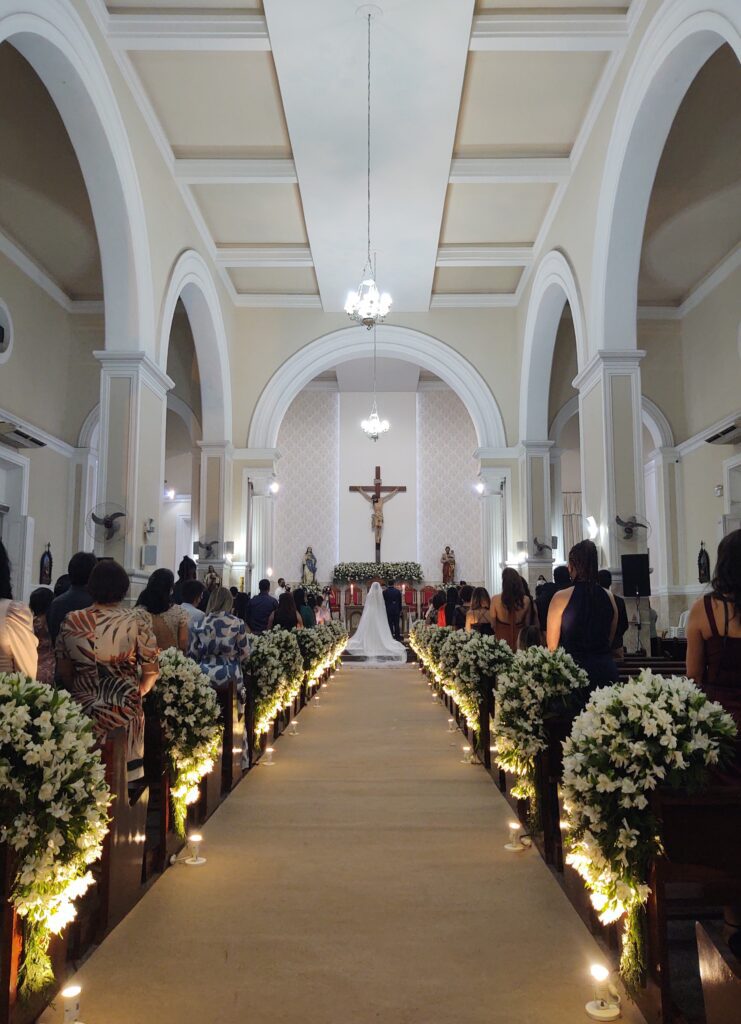
It was God’s instrument for the begetting, the rearing, the education, and the moral training of successive generations of human beings. Marriage was a “natural,” we might say, for elevation to the holy rank of a sacrament. Besides the priesthood, there is no state in life that pleads for grace as demandingly as does marriage.
The Sacrament of Marriage is a covenant, which is more than a contract. Covenant always expresses a relationship between one man and one woman. The marriage covenant refers to the relationship between the husband and wife, a permanent union of persons capable of knowing and loving each other and God. The celebration of marriage is also a liturgical act, appropriately held in a public liturgy at church. Catholics are urged to celebrate their marriage within the Eucharistic Liturgy.
Like every sacrament, it gives two kinds of grace. First of all there is the increase in sanctifying grace, imparted at the very moment that the sacrament is received.
As the just-wed couple turns away from the altar, their souls are spiritually stronger, spiritually more beautiful than when they came to the altar a few moments earlier.
The bride and groom must contact the rectory upon engagement to begin wedding preparation. A minimum of six (6) months in advance of the anticipated wedding date is required. Wedding dates cannot be established until the bride and groom have personally met with the pastor.
“He summoned the Twelve and began to send them out two by two… They anointed with oil many who were sick and cured them.”
Mark 6:7, 13
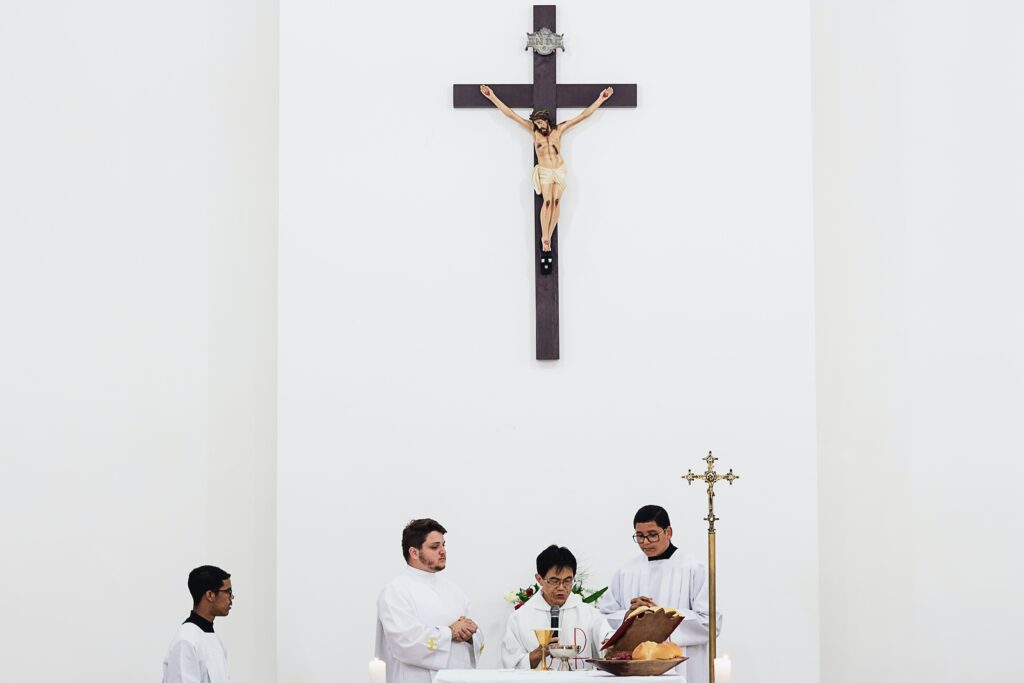
“The anointing of the sick can be administered to any member of the faithful who, having reached the use of reason, begins to be in danger by reason of illness or old age” (canon 1004; cf. CCC 1514).
A new illness or a worsening of health enables a person to receive the sacrament a further time.
If you have a loved one in need of anointing, please call the parish office, 309-367-4407.
“Christ’s invitation to the priesthood is an invitation to a way of life that is athletic in its intensity and heroic in its form.”
Bishop Robert Barron
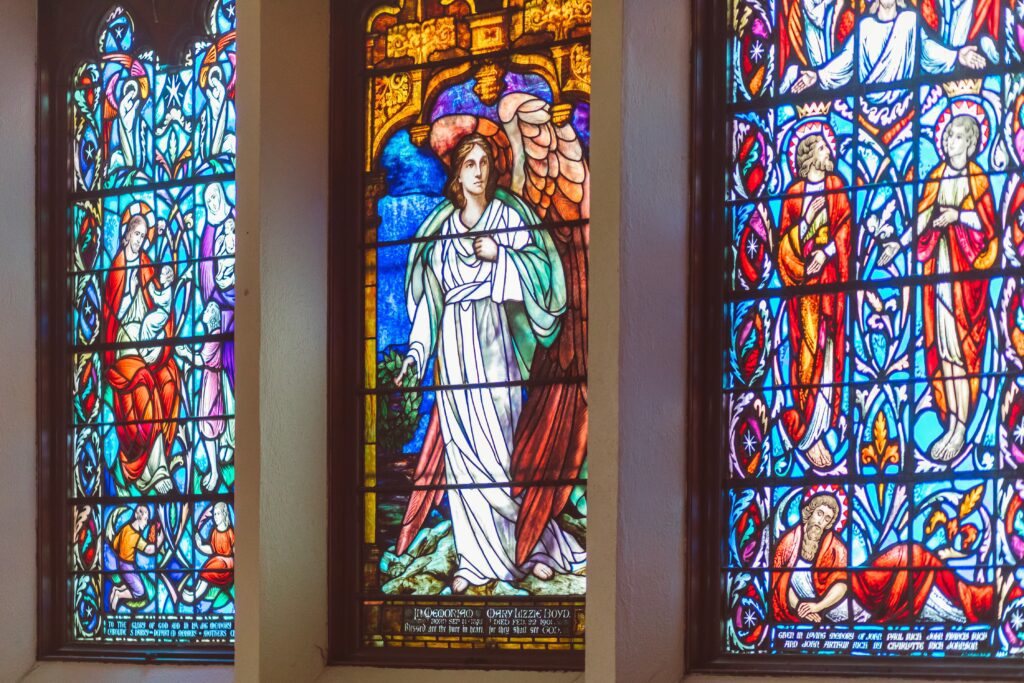
If you are someone you know feels they have a religious vocation please reach out to a parish priest or contact the church office.

